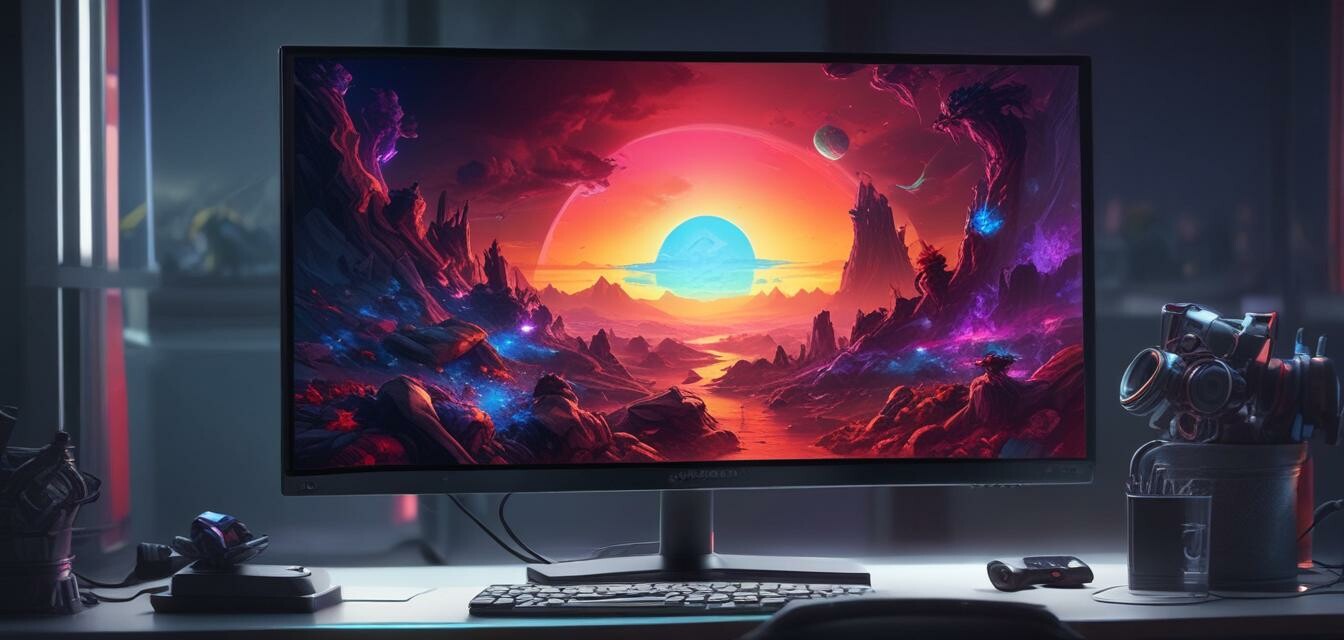
Understanding resolution options for OLED monitors
Key Takeaways
- OLED gaming monitors offer various resolution options to enhance your gaming experience.
- Common resolution choices include 1080p, 1440p, and 4K.
- Higher resolutions provide better image quality but require more powerful hardware.
- Choosing the right resolution depends on your gaming style and the hardware capabilities.
- Consider factors such as refresh rate, screen size, and budget when making a choice.
Choosing the right resolution for your OLED gaming monitor can significantly affect your gaming experience. With so many options available, it’s essential to understand the differences between them, including how they can impact visuals and performance. In this guide, we will dive deep into the various resolution options available and help you figure out what suits your gaming needs best.
Types of resolutions available
OLED monitors typically come in several resolutions, each with its advantages and disadvantages. Below is a table summarizing the most common resolutions:
| Resolution | Pixel Count | Best For | Pros | Cons |
|---|---|---|---|---|
| 1080p | 1920 x 1080 | Casual gaming, budget builds | Lower cost, good performance | Less detail, lower graphics quality |
| 1440p | 2560 x 1440 | Competitive gaming, balanced performance | Better detail, a good compromise between performance and quality | More demands on hardware |
| 4K | 3840 x 2160 | High-end gaming, immersion | Exceptional detail and visual fidelity | Requires powerful hardware, more expensive |
1. 1080p Resolution
1080p resolution, also known as Full HD, is one of the most common choices among gamers, particularly those on a budget. Here's a look at its key features:
- Lower cost of entry.
- Compatible with a wide range of older and budget graphics cards.
- Offers good performance for fast-paced games.
2. 1440p Resolution
1440p or QHD resolution is becoming increasingly popular among gamers looking for a balance between performance and visual fidelity. Its features include:
- Better overall image quality compared to 1080p.
- Provides more detail for visually rich environments.
- Ideal for competitive play where clarity matters.
3. 4K Resolution
4K resolution offers an immersive gaming experience but demands more from your graphics hardware. Some of its features are:
- Outstanding visual clarity, ideal for cinematic experiences.
- Best suited for high-end gaming rigs.
- Great for creative professionals who need high-resolution displays.
Factors to consider when choosing a resolution
When deciding on the right resolution for your OLED gaming monitor, consider the following factors:
- Your gaming style: Are you a casual player, or do you prefer competitive gaming?
- Hardware capabilities: Does your graphics card support higher resolutions?
- Screen size: Consider how resolution looks on different screen sizes.
- Budget: Determine how much you are willing to spend on your gaming set-up.
Conclusion
Understanding the different resolution options for OLED gaming monitors is vital in creating the best gaming experience for your needs. Whether you choose 1080p, 1440p, or 4K, ensure that you take into consideration your gaming style, budget, and hardware capabilities.
Pros
- Enhanced gaming experience with superior visuals.
- Options available for various hardware setups.
- Improved performance for competitive gaming.
Cons
- Higher resolutions may require expensive hardware.
- Some resolutions may not be suitable for all game genres.
- Can be overwhelming for new gamers to choose from.
Helpful resources
For more insights on making informed decisions about OLED gaming monitors, check out our Buying Guides category for valuable recommendations and tips.
Additionally, learn about the 4K OLED Gaming Monitors, and explore other varieties like Budget-Friendly OLED Gaming Monitors to find options that fit your needs.